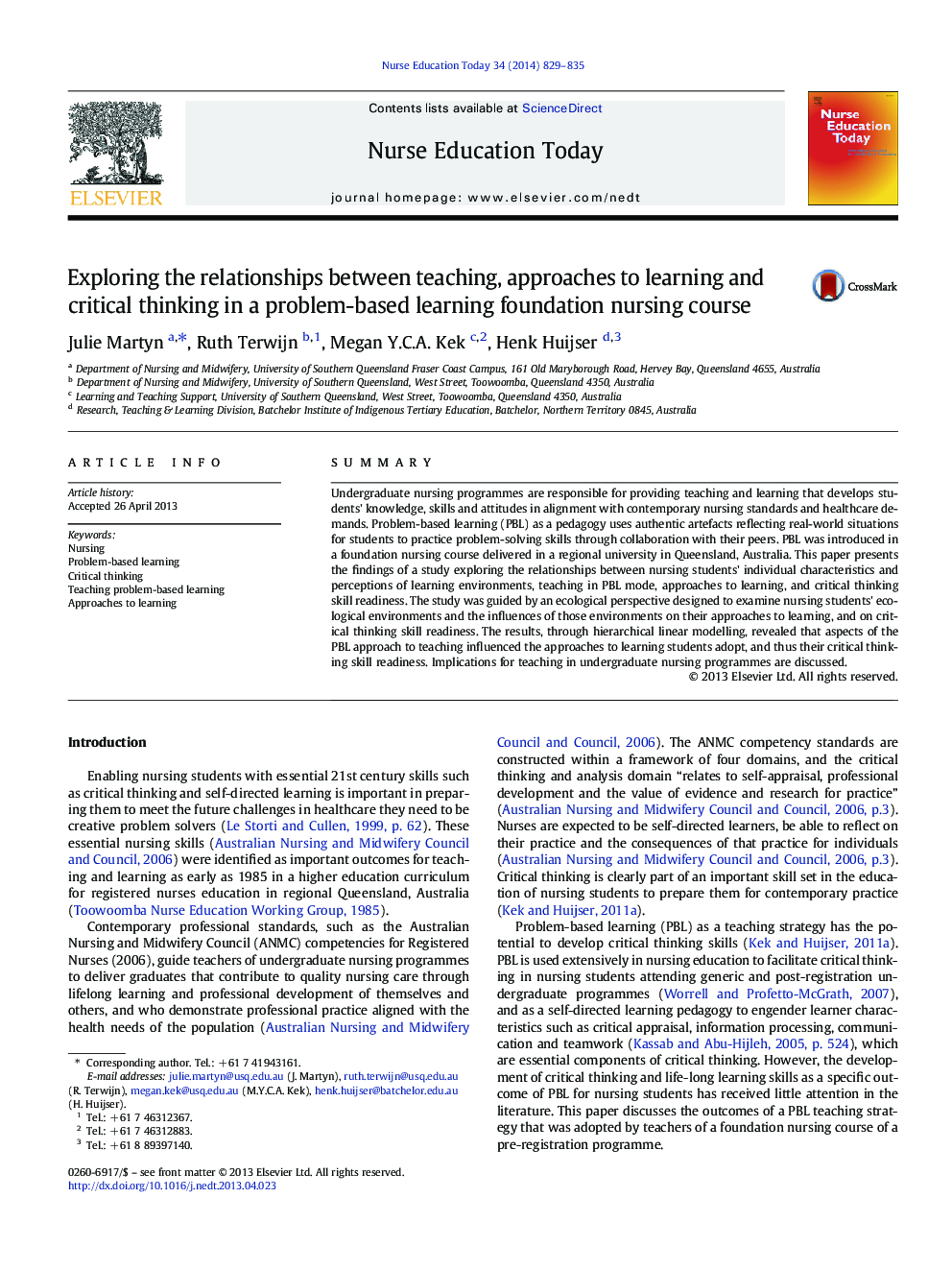| Article ID | Journal | Published Year | Pages | File Type |
|---|---|---|---|---|
| 368330 | Nurse Education Today | 2014 | 7 Pages |
SummaryUndergraduate nursing programmes are responsible for providing teaching and learning that develops students' knowledge, skills and attitudes in alignment with contemporary nursing standards and healthcare demands. Problem-based learning (PBL) as a pedagogy uses authentic artefacts reflecting real-world situations for students to practice problem-solving skills through collaboration with their peers. PBL was introduced in a foundation nursing course delivered in a regional university in Queensland, Australia. This paper presents the findings of a study exploring the relationships between nursing students' individual characteristics and perceptions of learning environments, teaching in PBL mode, approaches to learning, and critical thinking skill readiness. The study was guided by an ecological perspective designed to examine nursing students' ecological environments and the influences of those environments on their approaches to learning, and on critical thinking skill readiness. The results, through hierarchical linear modelling, revealed that aspects of the PBL approach to teaching influenced the approaches to learning students adopt, and thus their critical thinking skill readiness. Implications for teaching in undergraduate nursing programmes are discussed.
